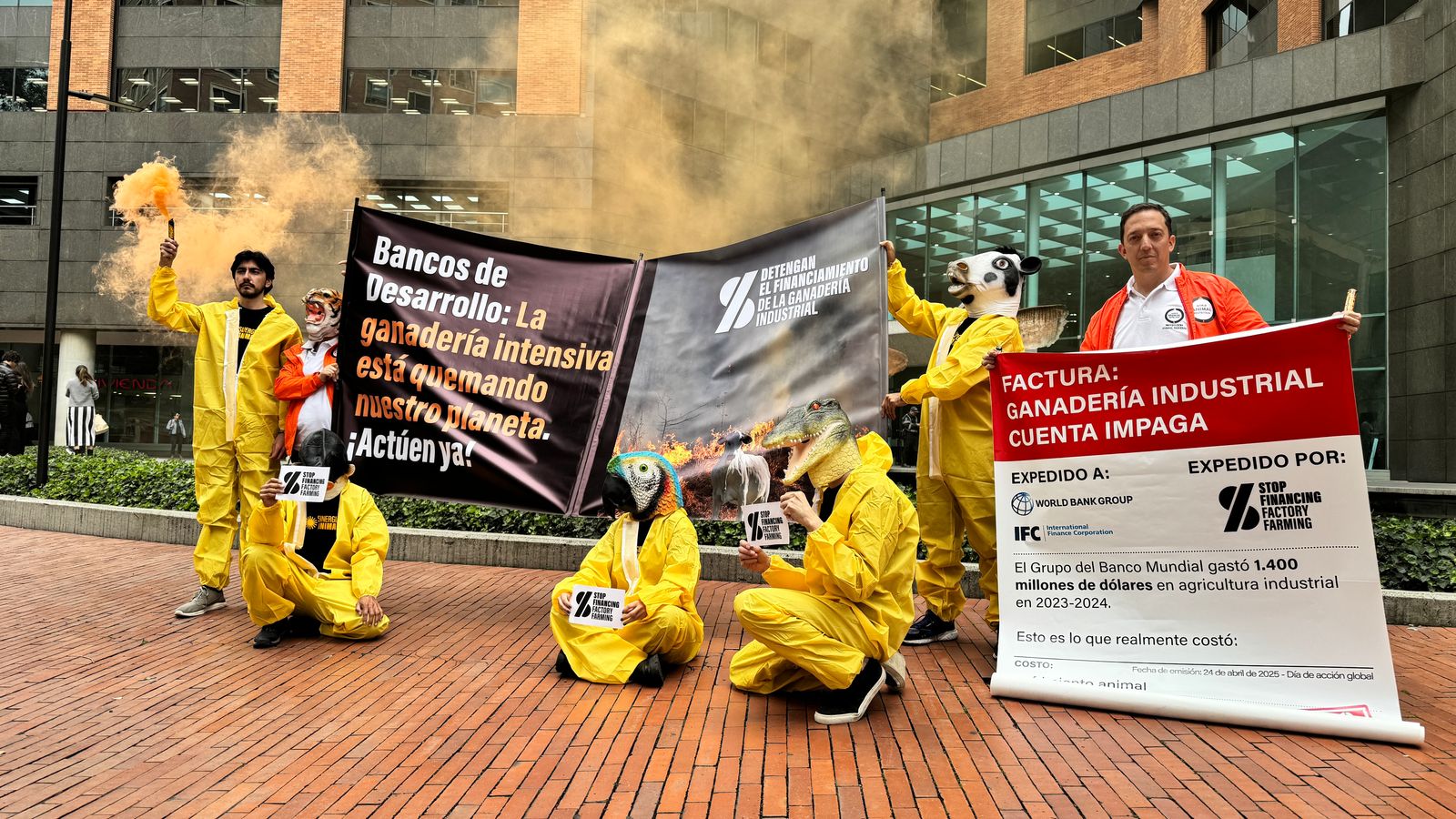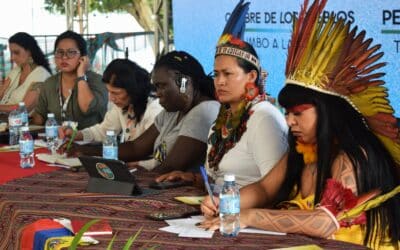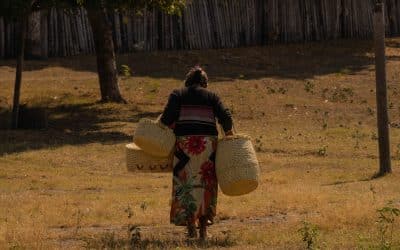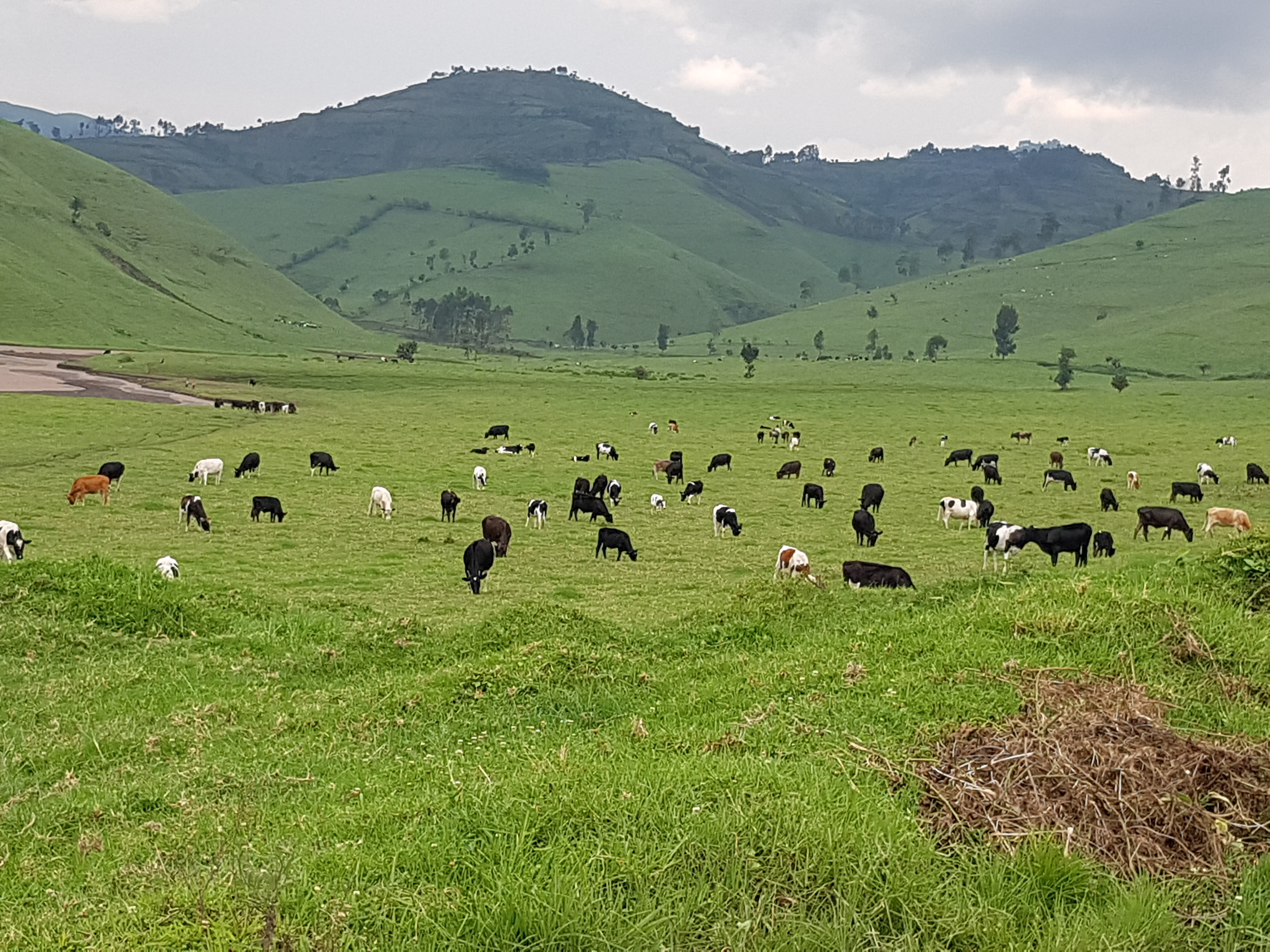Celebración del Día Mundial de Acción: «Banco Mundial, ¿merece la pena la ganadería industrial?».
El 24 de abril, GFC, como parte de la coalición Alto al Financiamiento de la Ganadería Industrial, entregó al Banco Mundial una factura simbólica gigante por el coste real de los proyectos perjudiciales de los proyectos de agricultura animal industrial que financia, entre otros a través de su Corporación Financiera Internacional, en el marco del Día Mundial de Acción organizado por S3F, que movilizó a cientos de miembros y aliados de GFC.
… seguir leyendo en inglés:
Under the slogan “World Bank: Is Factory Farming Worth it?”, we showed across five continents and over 50 countries that organizations focused on animal welfare, human rights, the environment, gender justice, indigenous rights, peasants’ rights, and more stand united. Together, we declared: Factory farming is not worth it.
Factory farming is a driver of deforestation and biodiversity loss. It presents serious risks to human health locally and globally and contributes one-fifth of global greenhouse gas emissions, which are fueling climate change, causing global warming, sea level rise, and natural disasters. Despite this, the IFC approved 38 loans worth roughly $2 billion to industrial meat, dairy, and animal feed corporations between 2020 and 2025.
Here are some highlights from the Global Day of Action to Stop Financing Factory Farming:
- Collected 285 signatures from academics and CSOs supporting our open letter to the World Bank Group, calling on it to phase out financing for factory farming. The letter was handed directly to their staff by an indigenous young woman, Xananine, in Washington DC during the World Bank’s annual spring meetings.
- The open letter was also delivered in World Bank Group offices in Quito, Buenos Aires, London, Ámsterdam, Bangkok, Santiago, Bogotá, and São Paulo.
- We made them look! In Bangkok, Bogotá, Buenos Aires, Goma, Lagos, Medellín, Mexico City, New York, Quito, Santiago, São Paulo, New York and Washington D.C., we organized actions to distribute flyers, provide information, and demonstrate in front of the WBG offices or iconic locations with banners, giant invoices, masks, smoke, and other elements to show that industrial livestock farming does not justify the harm it causes.
- Around the WBG Headquarters in Washington, DC, we had bold bus shelter ads stating: “World Bank: Is factory farming worth risking the next pandemic?” and “World Bank: Is factory farming worth climate change?”
- We held a Civil Society Policy Forum during the World Bank Spring meetings about alternative food systems, at which some WB Executive Directors heard about alternative food systems that feed the world sustainability, without devouring the planet and the future for all lifeforms.
The Global Forest Coalition has long pointed out the impacts of industrial animal agriculture on deforestation and forest degradation, and its outsized contribution to climate change, and also its social impacts, including gendered ones. We are part of the steering committee of the Stop Fiancing Factory Farming coalition.
To get involved with S3F, follow our campaign on social media, subscribe to our Newsletter or email hello@stopfinancingfatoryfarming.com.




